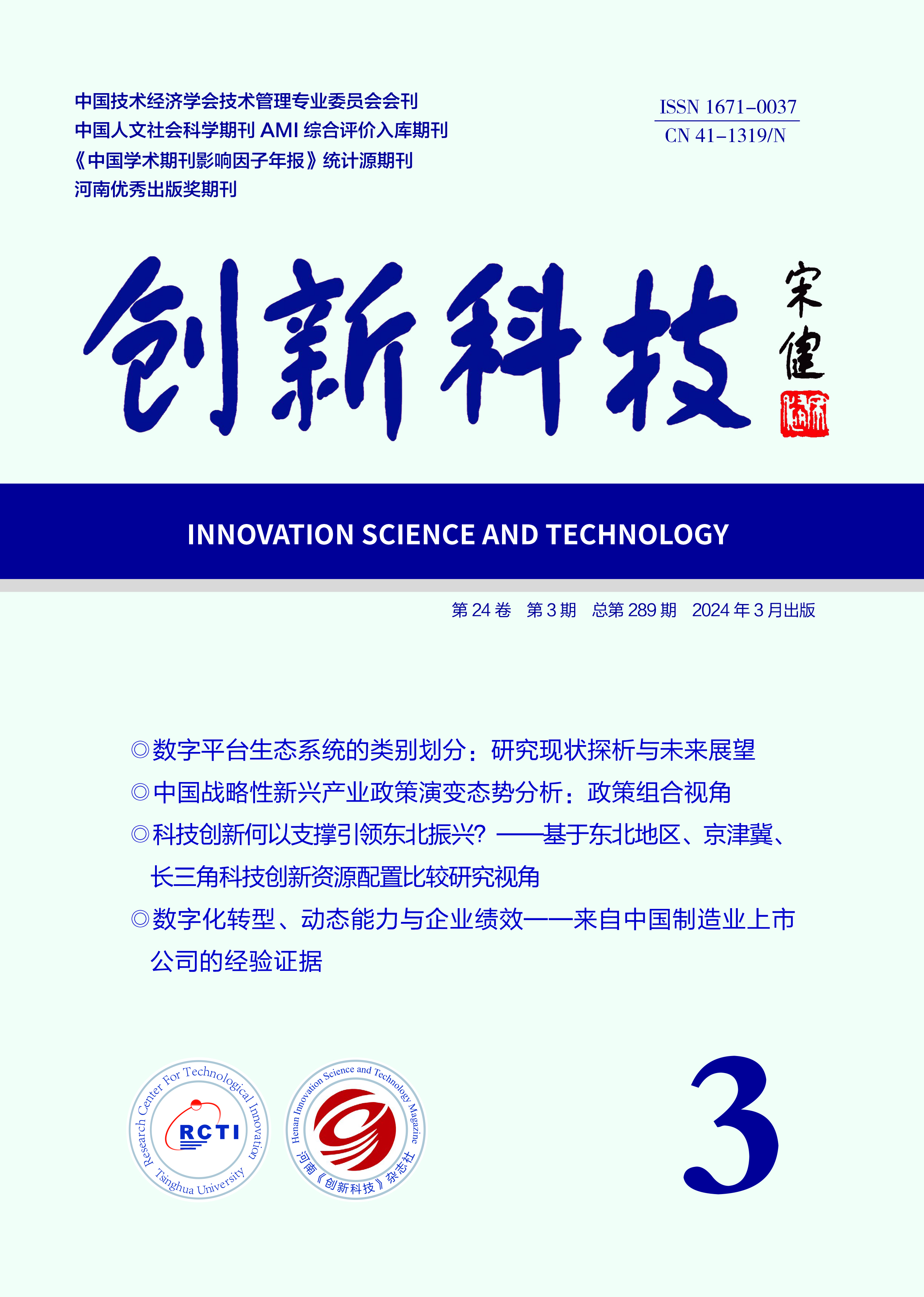INNOVATION SCIENCE AND TECHNOLOGY
Quick Search

All publication are peer-review
Peer review will take the from of double-blind review Judge objectively and impartially
There is no conflict of interest for the reviewer
Review articles shall be kept strictly confidential prior to publication
Enterprise's R&D and Innovation Management
The Effect of Ambidextrous Boundary-spanning Search on Dis⁃ ruptive Innovation of New Ventures from the Perspective of Insti⁃ tutional Environment
Li Honggui, Zhu Xian, Guo Qu, Xu Xinyue
(School of Economics and Management, Nanjing Tech University, Nanjing 211816, China)
Abstract: With intensified market competition and the growing prominence of bottlenecks in core technologies, emerging ventures are in urgent need of leveraging external knowledge to achieve disruptive breakthroughs. As a vital approach for acquiring heterogeneous external knowledge and resources, boundary-spanning search not only helps new ventures compensate for internal capability deficiencies but also provides both theoretical and practical support for their ability to rapidly respond to market changes and achieve breakthrough development in un⁃ certain environments. This study focuses on new ventures in regions with active entrepreneurial activity, such as Jiangsu and Guangdong. Data were collected through a questionnaire survey from 235 new ventures. Reliability and validity analyses were conducted using SPSS and AMOS, and hierarchical regression analysis was applied to examine the differentiated impacts of boundary-spanning search—specifically, the breadth and depth of market and technological knowledge—on disruptive innovation in both low-end and new markets. Furthermore, the study explores the moderating role of the institutional environment in these relationships. The findings reveal that: ①The breadth and depth of technological knowledge search exert significant positive effects on both types of disruptive innovation, and the depth of market knowledge search also demonstrates significant positive effects. However, the breadth of market knowledge search pri⁃ marily drives disruptive innovation in new markets only, possibly because low-end markets em⁃ phasize cost-effectiveness and practical stability, which do not heavily rely on diverse market in⁃ formation. ②Due to the complexity of knowledge integration, ambidextrous strategies (combining breadth and depth) exhibit differentiated effects. ③The institutional environment significantly moderates the relationships between ambidextrous strategies and both types of disruptive innova⁃ tion. However, it does not significantly moderate the link between market knowledge search breadth and disruptive innovation, while it significantly and positively moderates the link be⁃ tween technological knowledge search and both forms of disruptive innovation. This study high⁃ lights the integration paradox of hybrid strategies, where simultaneously pursuing both knowl⁃ edge breadth and depth may constrain each other due to increased integration costs and cogni⁃ tive conflicts, ultimately undermining the effectiveness of disruptive innovation. The findings provide both theoretical insights and practical guidance for new ventures to develop differenti⁃ ated boundary-spanning strategies tailored to varying institutional environments, to coordinate knowledge breadth and depth more effectively, and to enhance resource integration efficiency and disruptive innovation capability.
Key words: boundary-spanning search; ambidextrous combination strategy; disruptive innova⁃ tion; institutional environment; new ventures